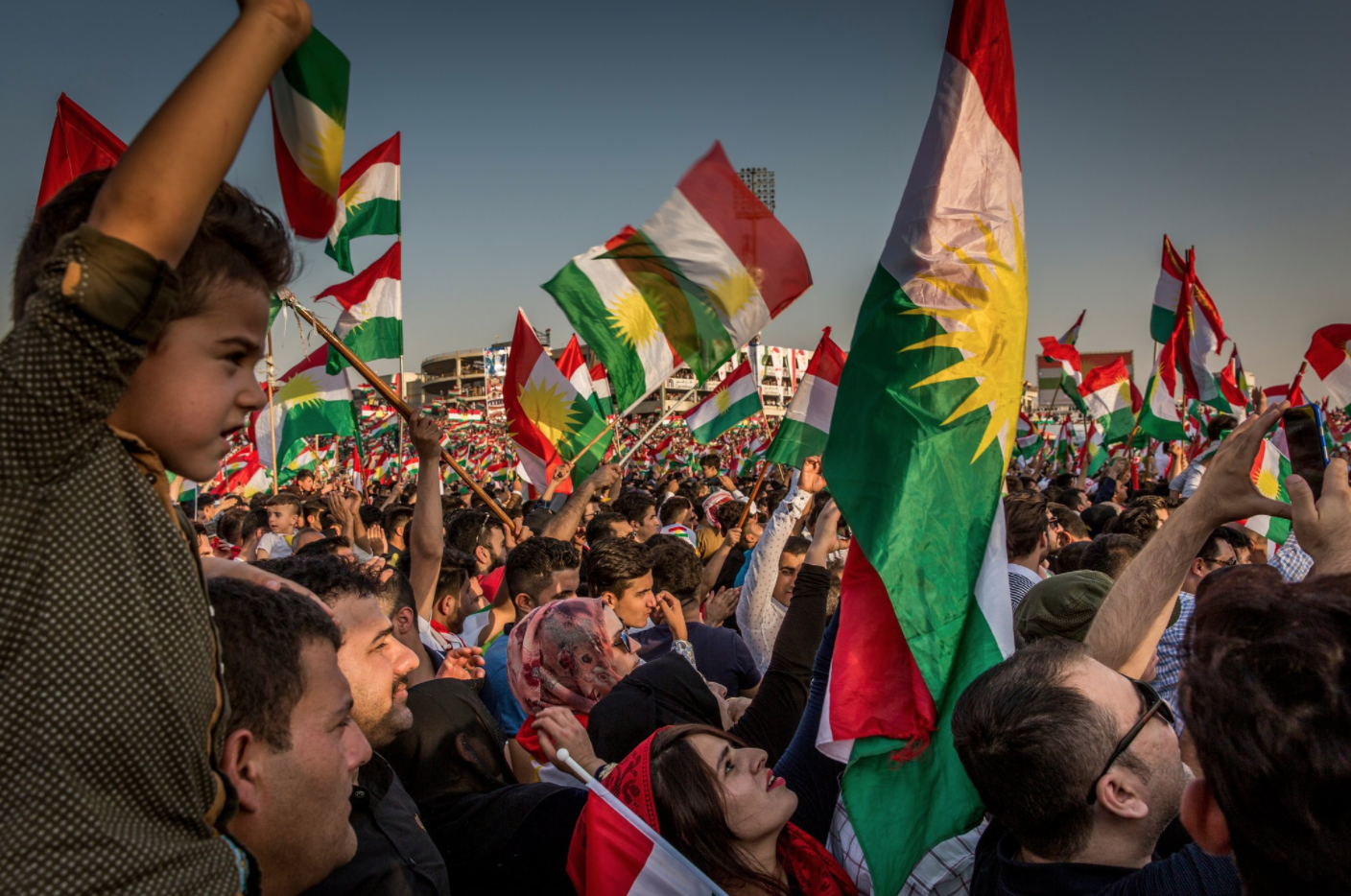On Sept. 25th, 2017, the electorate of the Kurdistan Region of Iraq (henceforth called ‘Başûr,’ the Kurdish name for Iraqi, or Southern, Kurdistan) participated in a historic referendum for independent statehood. Kurds in Iraq carried the decision to an overwhelming 93% vote in favor of secession, with 72% of all eligible voters participating. Having had de facto autonomy in most of Başûr since 1991—which today includes its own sitting president, international diplomacy missions, a military wing (Peshmerga), and foreign trade negotiations independent from Baghdad—the Kurdistan Regional Government (KRG) now appears intent on honoring the results of the referendum and striving toward full independence.

But the path toward statehood seems less clear now than ever. As Kurds across the region celebrated the decision of their compatriots, the governmental bodies which dissimulate Kurdistan’s boundaries (Iran, Iraq, Syria, and Turkey) all sharply rejected the results of the referendum. The risk of military action is growing quickly. Baghdad has sent troops to secure oil fields in Kirkuk, a city which has been under Peshmerga control ever since Daesh’s major offensive into nearby Mosul (2014), and the subsequent abandonment of Kirkuk by Iraqi military forces. Iraqi and Turkish troops are also now coordinating joint exercises in Habur (Turkey) near Iraq’s northern border. Additionally, the Iranian Chief of Staff, Major General Mohammad Bagheri, confirmed on Wednesday, September 27th, that Tehran will allow Iraqi forces to be stationed on the Iranian border with Başûr. Lastly, Ankara’s post-referendum provocation against the KRG’s referendum is especially alarming. “It will be over when we close the oil taps, all [their] revenues will vanish, and they will not be able to find food when our trucks stop going to northern Iraq,” Turkish President Recep Erdoğan said.
Despite such frightening uncertainty, me might find solace in revisiting the concept of nation and trying to understand its perhaps unexpected importance in the early 21st century. Addressing a conference at the Sorbonne in 1882, Ernest Renan famously defined the nation as a “daily plebiscite.” Neither a right of ‘race’, i.e. biological descent, nor that of kingly dynasty, Renan argued that the nation is predicated upon a dual-facing “spiritual principle”: a common legacy of “memories” on the one hand, and, on the other, “present-day consent, the desire to live together, the will to perpetuate the value of the heritage that one has received in an undivided form.” The nation is never something laid to rest or immutably proven; rather, it is a collective will to remember, and to keep remembering. Even further, as Bhabha reminds us, the “nation-space” is never unquestionably reified through this repetition of memory but renegotiated in every reiteration. The nation hence becomes the liminal site and struggle of cultural difference, betraying its enclosure and purification by nationalist discourse.
In the face of so many state-sanctioned obligations to forget, and alongside so many competing Kurdish nationalisms, Kurdistan persists in precisely this undecided, daily remembrance. No external attempt has yet succeeded in silencing it: not the violent repression of Kurds in the Republic of Turkey, nor the numerous brutal interventions led by the Pahlavi dynasty and the Islamic Republic of Iran, nor the denaturalization and forced displacement of Kurdish citizens under Ba’athist rule in Syria, nor the genocidal al-Anfal campaign (1986-1989) against Iraq’s Kurdish population. And neither has Kurdistan been killed off by the intense periods of conflict between Kurds—whether it is PKK guerrillas against Peshmerga (and each other), Iraqi Kurdish betrayals against Iranian Kurdish comrades, the horrible civil war in Başûr in the 1990s, or the recent power struggles between Başûr and Kurdish fighters in Turkey over influence in Rojava. Indeed, Kurdistan does not exist despite its tumultuous, fracturing histories but directly because of them. More than anything, Kurds have shown that it is not their abandonment of but their belonging to Kurdistan—as an ambiguous, pluralized nation-space—which provides them refuge against domination, which grants them the freedom to narrate Kurdistan as an unsettled question. It is unclear if or when Kurds will reach independence, but the September 25th referendum in Başûr reveals once again that the memory of Kurdistan, and hence the memory of nation, is far from forgotten.
*In memory of Mam Jalal Talabani (1933-2017), founder of the Patriotic Union of Kurdistan (PUK) and former President of Iraq (2005-2014).
John Kendall is an MA student in Geography at the University of Minnesota. His thesis research focuses on Christian missionary work in Kurdistan during the 19th and early 20th century. His broader interests include political geography, postcolonialism, and Kurdish national identity

Comments